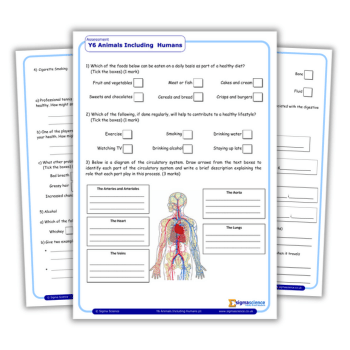Why We Need To Stop Feeding The Data Monster

"We were told that the more often we fed him the more nuanced his insights would be, and woe betide those that didn’t feed him at all."

The data monster is very greedy; he’s not at all picky. He’ll hoover up letters or numbers and has become increasingly fond of fine grades (those plus symbols are especially tasty). His appetite has grown exponentially and he now demands to be fed, at the very least, half-termly. How else can he be expected to egest RAG rated graphs and charts?
When we started feeding him, little did we know what would happen – how could we? The care instructions told us to keep him fed and he’d tell us how our students were doing. That the more often we fed him the more nuanced his insights would be and woe betide those that didn’t feed him at all.
Before we knew it, we were feeders and enablers for a monster that cared less about student progress and more about being fed. And with his appetite never sated we started assessing students more and more. So what if the assessments weren’t rigorous, and if the grades applied were questionable? The data monster had to be fed!
What was also questionable was what we did with the information he told us. His insights became a mere tool for holding teachers to account. ‘Why is the data monster telling us that 50% of your students are below target – what are you doing wrong?’ ‘Why is the data monster suggesting that all of your students are on track – that can’t be right.’
And so we became a little bit more careful about what we fed him. After all, he wanted data but he couldn’t tell the difference between meaningful and meaningless data. We could just make the data monster excrete the information we wanted him to.
We’re all familiar with the maxim: you don’t fatten a pig by weighing it. And we don’t improve a student’s learning by attempting to measure it. We may, in fact, be hindering it.
In trying to apply a grade to a student, our purpose moves away from identifying next steps to generating some flawed shared meaning. It’s flawed because learning is a complex business, and our scales are a bit iffy. We have to be careful not to assume too much from a grade that has been fed to the data monster. Inconsistencies in how grades have been applied, made up grade boundaries, criterion-based assessment, bias and accountability fears all contribute to a data quagmire in which we are currently sinking.
We need to be clear about why we’re assessing students. Are we assessing them because we want to diagnose what a student knows, understands and can do in order to help them progress? Or are we assessing them because the data monster wants feeding?
Of course we need to track student progress – we need to identify students’ learning needs – but we don’t do that by slapping a grade on things. Formative assessment is the most powerful tool in the teacher’s toolkit because it enables us to find out what has stuck and what hasn’t. It’s our planning for subsequent lessons and it opens up a dialogue between teacher and student about learning. We must value it more highly even if the information can’t be fed to the data monster.
So let’s stop feeding the data monster, or at least put him on a very strict diet. He might make a lot of noise to begin with but he’ll soon quieten down and everybody will be the better for it.
Rebecca Foster is a Head of English in charge of whole school literacy. She’s a keen member of the Teaching and Learning team and Research-Lead in the making. She loves teaching. Find her at thelearningprofession.wordpress.com and follow her on Twitter at @TLPMsF.











